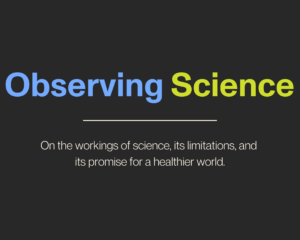Let's Not Panic About the Vaccine Commission Just Yet
While talk of vaccine safety commissions is concerning to those who believe that vaccines are both safe and effective, here are some reasons not to panic.

Read Time: 4 minutes
Published:
Many people are concerned about President-elect Trump creating a commission “on vaccine safety and scientific integrity.” As someone who spends a lot of time studying child vaccine policy (such as this article in the Millbank Quarterly and this blog post published by NACCHO), I wanted to provide some reasons why I do not think we should panic just yet:
1. Much of child vaccine policy is set at the state level. Want to mandate that children receive the chickenpox vaccine? State governments are responsible for these laws. Want the right to opt out of vaccines due to religious reasons? State governments are responsible for this, too. Want to make sure that every parent of a seventh-grader is informed about the HPV vaccine? You guessed it, state governments again. While creating such a commission (or publicizing the fact that there might be such a commission) could cast doubt on the safety of vaccines, the federal government cannot change these types of laws outright.
2. It’s tough to change state child vaccine policies. Even when the now-discredited article claiming the MMR vaccine-autism link came out, there wasn’t a bunch of legislation passed to remove vaccine requirements or allow more parents to opt out of vaccines for their kids. Notably, in 2003, Texas (more about Texas later) and Arkansas changed their laws to allow for philosophical exemptions to vaccination. To qualify for a philosophical exemption, parents simply say that they do not believe in vaccination, or question the safety of vaccines, and their child is able to attend school unvaccinated. To be fair, if a couple states do end up changing their laws to allow more philosophical exemptions, it could spell trouble at the local level.
While talk of vaccine safety commissions is concerning to those of us who believe that vaccines are both safe and effective, there is no reason for us to panic just yet.
3. The feds have turned to panels of experts before to examine vaccine safety. They found no causal link between the MMR vaccine and autism. (Granted, the investigation may be more politically motivated this time). The report referenced above is written for an academic audience and, as such, they bury the lead: “The committee concludes that the body of epidemiological evidence favors rejection of a causal relationship between the MMR vaccine and autism.” A listing of additional independent vaccine reports by the Institute of Medicine is available here. Let’s save federal dollars and effort and put them toward other pressing health concerns. Speaking of which…
4. We should be focusing our media and personal attention on other health-related policy issues (ahem, ahem, the ACA). I’ll let you know when I’m worried about the state of state vaccine policy, which has been going the other way recently (see for example, laws in Michigan in 2014, and California and Vermont in 2015 that aim to increase vaccination among children). Speaking of which, a Republican lawmaker in Texas has introduced a bill that would require parental education prior to opting out of vaccination. This comes two years after another Republican lawmaker tried to get rid of the philosophical exemption entirely. Without going into too much detail about state politics, it is worth noting that both Republicans (e.g., Michigan and Texas) and Democrats (e.g., California and Vermont) work to promote childhood immunization.
5. While I’m not concerned about the Trump administration changing mandate and exemption laws (recall, these are state-level policies), the administration can exert control in some troubling ways. For example, I would be concerned about the fate of the federal-level Vaccines for Children program. This program provides free vaccines to children whose families can’t afford them. But, it’s likely that a repeal and replace of the Affordable Care Act will take precedence over cuts to programs like this (I hope).
While talk of vaccine safety commissions is concerning to those of us who believe that vaccines are both safe and effective, there is no reason for us to panic just yet.
Featured image: Quinn Dombrowski, Day 354: First Shot, used under CC BY-SA 2.0 license/cropped from the original


